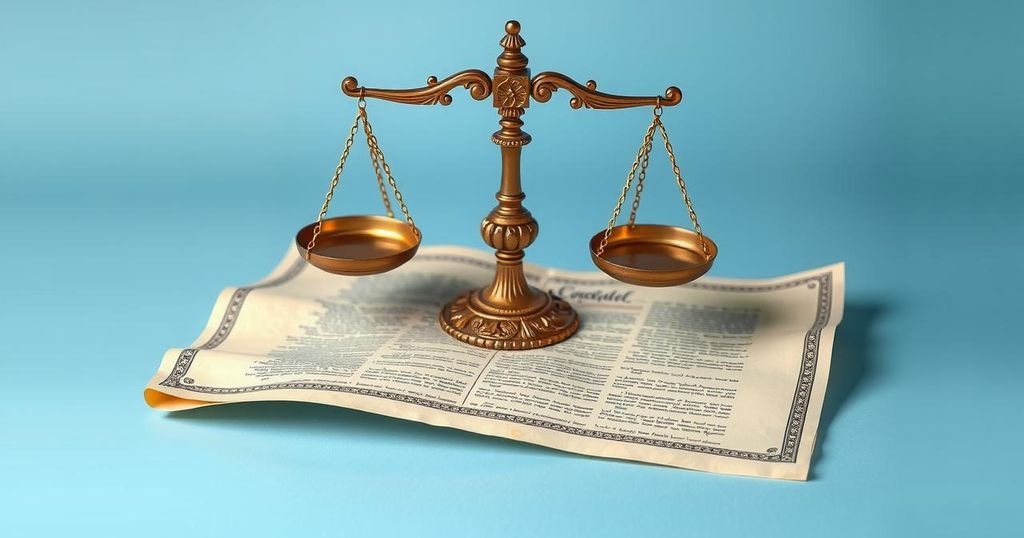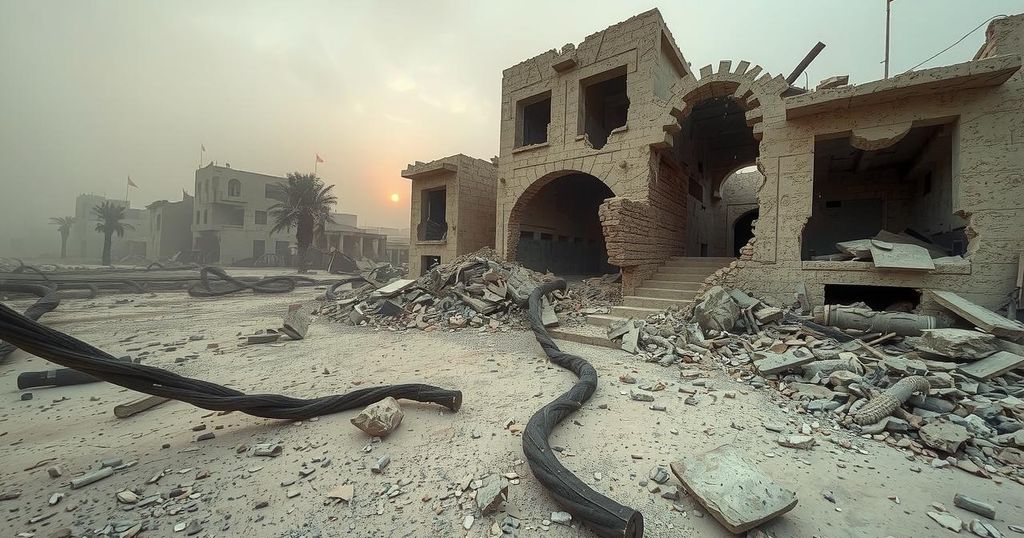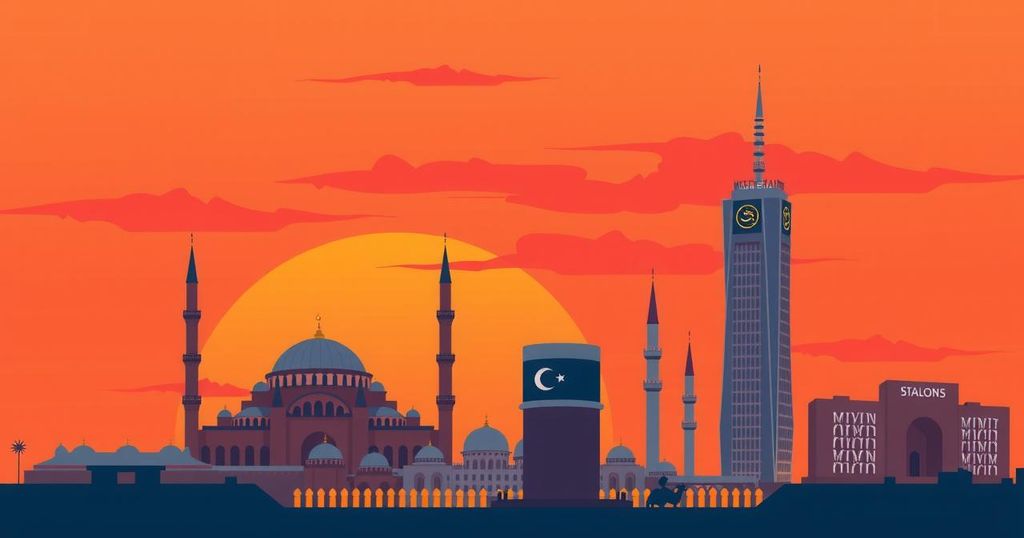Syria’s new temporary constitution centralizes power under interim president Ahmed al-Shara and retains Islamic law as the legal foundation. The declaration promises individual freedoms and women’s rights during a five-year transitional period but faces skepticism from diverse groups due to al-Shara’s extremist ties. The president has significant authority including the appointment of one-third of an interim parliament.
Syria has adopted a temporary constitution that consolidates significant authority within the office of the interim president, Ahmed al-Shara, while establishing Islamic law as the underpinning of its legal framework. This decision follows the repeal of the previous constitution, which was enacted under the leadership of former authoritarian president Bashar al-Assad.
In a declaration signed by President al-Shara, he heralded a new era for Syria, emphasizing a commitment to inclusivity following decades of dictatorship and civil conflict. The constitution outlines guarantees for individual freedoms, including the right to freedom of opinion and expression, and pledges to protect women’s rights during a transitional five-year period, culminating in the establishment of a permanent constitution and elections.
Despite these promises, skepticism persists among Syria’s diverse ethnic and religious populations regarding President al-Shara’s intentions to foster an inclusive government, given his connections to an Islamist extremist faction. Concerns remain about the practical implementation of these freedoms in a nation still grappling with the legacy of repression.
The temporary constitution further empowers the president with executive authority, including the ability to declare a state of emergency. In addition, President al-Shara will have the authority to appoint one-third of the interim parliament, while the remaining members will be selected by electoral commissions under his oversight, posing questions about the true nature of democratic engagement in this transitional phase.
In summary, Syria’s new temporary constitution, signed by interim president Ahmed al-Shara, offers a blend of guaranteed individual freedoms and concentrated presidential authority. While it initiates a noteworthy shift from prior repression towards potential inclusivity, skepticism remains due to al-Shara’s background and the reliance on Islamic law. The structure of the new government raises questions about genuine democracy and representation during this transitional period, as the nation seeks to rebuild from the ashes of war and dictatorship.
Original Source: www.nytimes.com




